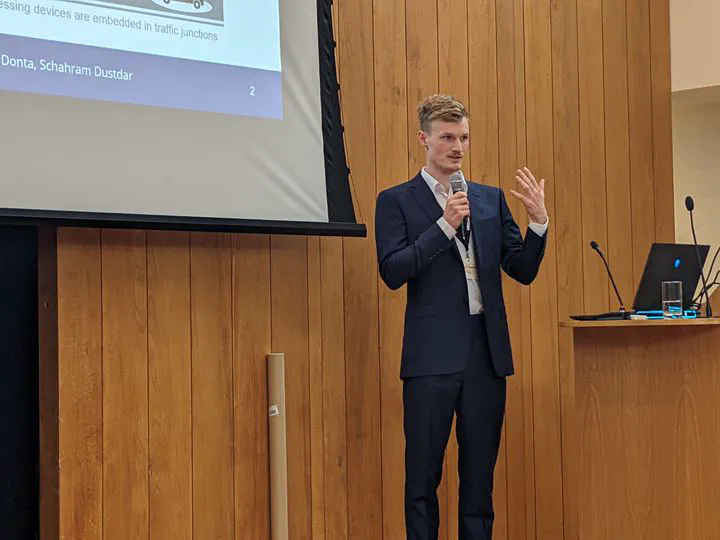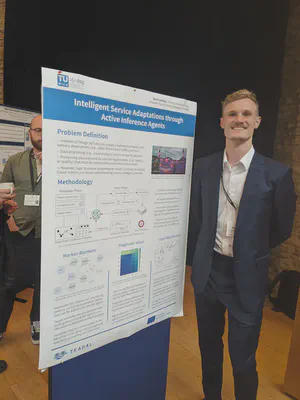Intelligent Service Adaptations through Active Inference Agents

Abstract
To ensure the system’s functionality, stakeholders describe each tier’s expected behavior through Service Level Objectives (SLOs), e.g., maintaining processing latency under a certain boundary. Evaluating these SLOs requires a set of metrics (i.e., sensory observations), which are commonly collected at one central system location; given this data, it can then be calculated to what degree SLOs were fulfilled. However, this requires transferring massive amounts of data; further, the latency for detecting and resolving SLO violations is high. The human body, as an example of a complex system, would collapse from the overhead of evaluating each cell’s requirements centrally (i.e., in the brain); hence, requirements assurance must be decentralized to the respective system components.
Date
Sep 9, 2024 1:00 PM — Sep 11, 2024 3:00 PM
Event
Location
Oxford, England
In Oxford I had the opportunity to exchange with high-class researchers involved in Active Inference, a concept from neuroscience, which we are trying to incorporate into computer science to improve the reactivity of software components.
